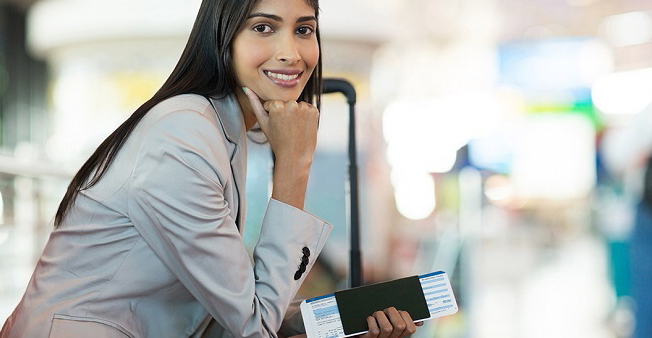|
As passengers in India become more familiar with
the use of technology, particularly mobile, they expect to use it
more on their airline journey.
According to the 2017 SITA Passenger IT Trends
Survey, the use of technology among Indian airline passengers
remains high at check-in (87%) and booking (52%) and this year has
seen tremendous growth in usage at other points in the journey as
well. The research shows that while adoption remains low, self-bag
drop usage climbed to 21% from 12% in 2016.
Passengers are also demanding new mobile
services with 83% saying that they would definitely use flight
updates on their mobile. And they would use their mobile for
baggage services too: 82% would report mishandled bags and 79%
would track their bags in real-time. This comes as no surprise
with more than one billion Indians using at least one mobile
device in 2016 of which 300 million are using a smart device.

Maneesh Jaikrishna, SITA Vice President Indian
Subcontinent, Eastern & Southern Africa said, �In India, travelers
are increasingly demanding the use of self-service and mobile
technology in the airport to speed up their journey. This
expectation, in many cases, is running ahead of availability in
Indian airports today.�
The research shows 54% of passengers would
rather opt to use self-bag drop than go to an airline check-in
counter, compared to 33% globally and well ahead of current usage.
Jaikrishna said, �This is good news for the
industry as it provides airports and airlines the opportunity to
fully benefit from technology to speed up the journey and drive
operational efficiencies, helping them meet the demands of rapidly
growing passenger numbers across the country.�
India is expected to see passenger numbers grow
by 337 million over the next 20 years to 2036, more than tripling
from the 141 million passengers in 2016.
Another area that is gaining the attention of
passengers is the use of biometrics. India�s national biometric
identity system is the largest in the world with over one billion
enrolled members and Indian passengers have shown greater
willingness to use biometrics to speed up their journey through
the airport. In 2017, 70% of passengers in India said they would
definitely use biometrics if given the option, removing the need
to show a passport or boarding card at key points in the airport.
This was well above the global average of 57%.
India�s Ministry of Civil Aviation is working
with the air transport industry to create a �digitally unified
flying experience� where citizens� national biometric
identification cards and foreigner�s passports are optionally
linked with the databases of airlines, airports and other
stakeholders to deliver a seamless, paperless travel experience at
every step in the journey.
Jaikrishna said, �Many travelers are comfortable
with the use of biometrics and see the benefits of using them on
their travels. This aligns perfectly with the need to find more
efficient ways to manage rising passenger numbers with current
resources. There is little doubt that technology is the key to
resolving India�s constraints on airport infrastructure.�
The survey was conducted across seven Indian
airports, representing 71% of passengers in the country.
Recent interviews:
China Airlines to Resume London Flights on 1 December 2017,
Owner of Rock 'n' Roll Hotel in London Outlines Asia Pacific
Expansion Plans,
The Truants Raise Over �3,000,000 for Three Children's Charities,
ASEAN Tourism Forum 2018 in Chiang Mai, Thailand - What Does TAT
Have Planned?
and
The Ritz-Carlton, Tokyo - HD Video Interview with Mr. John R.
Rolfs, General Manager.
|
Headlines: |
|
See latest
HD Video
Interviews,
Podcasts
and other
news regarding:
SITA,
India.
|
